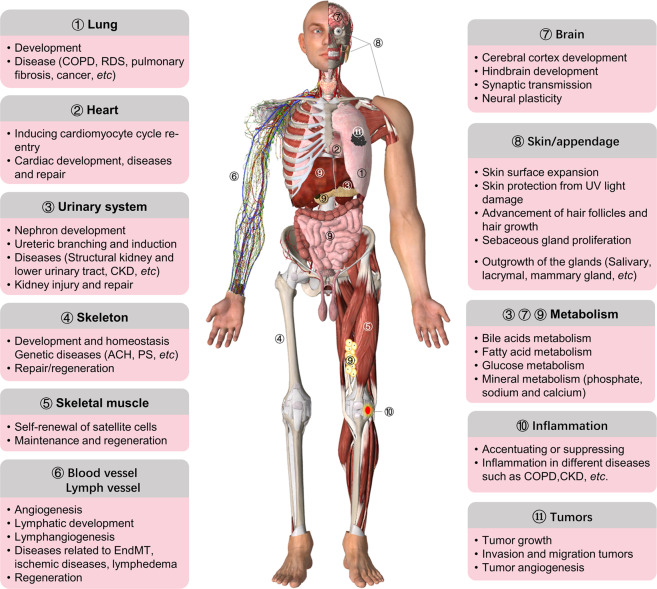Fig. 1.
Summary of the main roles of FGF/FGFR signaling in organ development, metabolism, and disease. FGF/FGFR signaling participates in the development of almost all organ such as lung, heart, urinary system, brain, skeleton, muscle, and skin/appendage, as well as angiogenesis and lymphangiogenesis. FGFs/FGFRs also have important effects on tissue repair, regeneration, and inflammation. Furthermore, endocrine FGFs play critical roles in metabolism by regulating kidney, liver, brain, intestine, and adipose tissue. The malfunctions of FGF/FGFR signaling lead to multiple kinds of diseases, such as genetic diseases, cancer, COPD, and CKD. The roles of FGF signaling in appendage development, such as epidermis, hair, and glands, and so on, is not mentioned in this review. ACH achondroplasia, CKD chronic kidney disease, COPD chronic obstructive pulmonary disease, PS Pfeiffer syndrome, RDS respiratory distress syndrome, EndMT endothelial-to-mesenchymal transition

